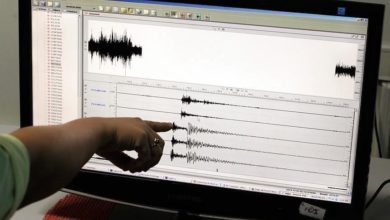Gangs turn Port-au-Prince into their “battlefield”
Clashes between gangs have paralyzed and stained with blood a sector of Port-au-Prince, the capital of Haiti, whose population suffers from unbridled inflation and critical fuel shortages that complicate crucial humanitarian aid.

Clashes between gangs have paralyzed and stained with blood a sector of Port-au-Prince, the capital of Haiti, whose population suffers from unbridled inflation and critical fuel shortages that complicate crucial humanitarian aid.
Since last Friday, volleys of gunfire have been heard throughout the day in Cité Soleil, an impoverished and densely populated neighborhood of Port-au-Prince, where two rival factions are clashing while police, short on staff and equipment, stand by. .
In the last week alone, the clashes have left at least 89 dead, 16 missing and 74 wounded by bullets or knives, according to the National Network for the Defense of Human Rights.
In the slums that have sprung up there over the past four decades, thousands of families have no choice but to shelter in their homes, unable to get food or water.
Some residents fall victim to stray bullets even inside their precarious sheet metal homes, but ambulances are not allowed to circulate freely in the area to help the wounded.
“We call on all belligerents to allow the passage of aid to Brooklyn”, an area of Cité Soleil where the violence is concentrated, “and to spare the lives of civilians,” asked the head of the local mission of Doctors Without Borders on Wednesday. , Mumuza Muhindo.
– “Battlefield”
The NGO, hindered in its operations to evacuate victims, has been treating an average of 15 wounded people a day since Friday, at its hospital near Cité Soleil.
“Along the only road that leads to Brooklyn, we have found decomposing or burned bodies,” Muhindo added.
“It could be people killed in the fighting or trying to escape who were killed. It’s a real battlefield.”
These deadly clashes between gangs affect activities throughout the capital, since Cité Soleil is home to the oil terminal that feeds Port-au-Prince and northern Haiti.
Not a drop of gasoline is dispensed at service stations in the capital, which has driven up fuel prices on the black market.
Motorcycle taxi drivers angry at this situation erected several barricades on the main roads of Port-au-Prince on Wednesday.
It was only possible to make short motorcycle trips within the neighborhoods, AFP journalists were able to verify.
Meanwhile, the inhabitants of the capital struggled to organize their daily activities, already hampered by the risk of kidnapping.
For more than two years, the gangs have multiplied kidnappings in the city, targeting people of all socioeconomic origins and any nationality.
Enjoying widespread impunity, criminal gangs have intensified their activities in recent weeks: at least 155 kidnappings were recorded in June compared to May, which totaled at least 118, the Human Rights Research and Analysis Center said in its latest report. published on Wednesday.
Many Haitians flee to the Dominican Republic or the United States. Others, without economic means or visas, risk their lives by boarding makeshift boats in the hope of reaching Florida.
While so many more are stranded on the Cuban or Bahamian coasts or are detained at sea by the US Coast Guard.
More than 1,200 irregular migrants were returned to Haiti in June alone, statistics from the national migration office show.
And when they return, they find it difficult to survive, taking informal jobs in this country where annual inflation broke the 20% barrier three years ago.
Economists warn that this rate may exceed 30% at the end of this year due to the impact of the war in Ukraine on the world economy.
“We see a significant increase in hunger in the capital and the south of the country, with Port-au-Prince being the hardest hit,” Jean-Martin Bauer, director of the World Food Program (WFP) in Haiti, said on Tuesday.
The UN agency uses air and sea routes to send aid to the south and north of the country, to avoid the outskirts of Port-au-Prince, in the hands of the gangs.
Nearly half of Haiti’s 11 million people are food insecure, of whom 1.3 million face a humanitarian emergency that precedes famine, according to the WFP classification.



